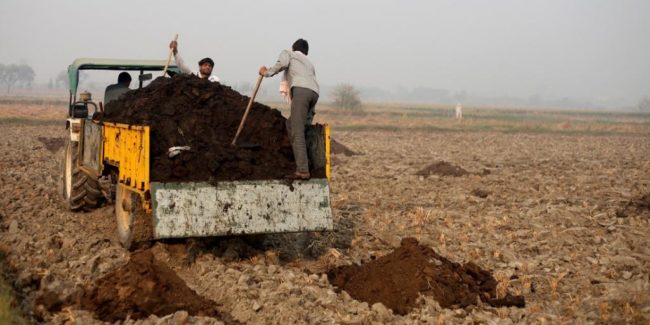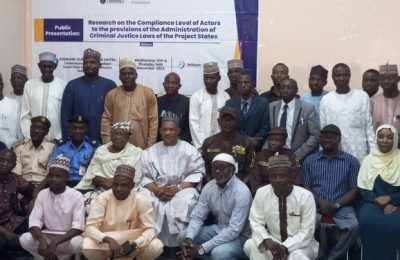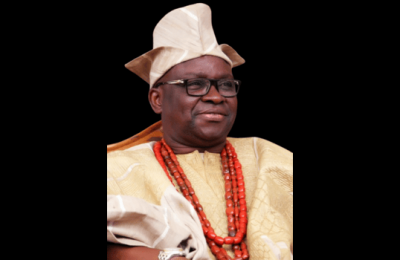Collins Nnabuife|Abuja
ORGANIC Agriculture is a production system that sustains the health of soils, ecosystems and people. It relies on ecological processes, biodiversity and cycles adapted to local conditions rather than the use of inputs with adverse effects.

Agroecology is based on applying ecological concepts and principles to optimize between plants, animals, humans and the environment whilst taking into consideration the social aspects that need to be addressed for a sustainable and fair food system (FAO).
Ernest Aubee, the former Head of Agriculture Division at the Economic Community of West African States (ECOWAS), Abuja in a presentation recently to Journalists Go Organic, highlighted some huge opportunities for Ecological Organic Agriculture (EOA).
“Huge unexplored land for EOA development. Since 2015 organic agricultural land has increased by 119,000ha. Organic farming market globally grew from $150.63 billion in 2021 to $169.04 billion in 2022.
“Increased local and global demands for healthy food products. Consumer concerns for safe foods and environmentally friendly production practices. Rise in incidence of terminal diseases. Growing urban middle class .Proximity to major EOA markets of Europe and Middle East”, he said.

On the challenges of EOA development in Africa, he said there is absence of coherent and intersectoral policies, legislative framework.
He said EOA matters are not having proper institutional framework in some African countries, and there is the lack of mainstreaming of EOA into national development policies and NAIPs for food and nutrition security.
“Limited Investments in EOA at country level. Member states not adhering to funding commitments of the Maputo and Malabo Declarations for the agriculture sector. Over dependent on foreign funding. With no room for sustainability. EOA funding faces a stiff competition from conventional agriculture which is heavily input dependent. Absence of standards in Member states”, he said.
Aubee said EOA is a sector that is highly regulated by standards, and the absence of standards reduces the level of competitiveness of African products in the domestic and international markets.
He further noted that standards is the seal for quality control, while standards setting bodies in some countries suffer from poor funding to institutional ineffectiveness.
“EOA is an agricultural value chain that requires high level specialists with the required skills. Agricultural curriculum provides little scope on EOA. The emphasis is on conventional agricultural approaches. Limited investments in EOA research and development. Limited EOA knowledge hubs and farmers field schools.
“Absence of EOA infrastructure and markets. EOA is science based and on the continent there are some countries without effective reference laboratories. The absence of laboratories does not support competitiveness, as standards cannot be adhered to. Absence of coordinated and organized markets. Lack of proper processing and marketing facilities. Agriculture commodities are highly perishable”, Aubee stated.
The expert further stated that tariff and Nontariff Barriers to trade, such as bureaucracy at border posts, non-adherence to common trade agreements such as the regional tariff regimes.
He said in some member states, there is limited publicity about the opportunities and benefits of EOA. He said there is the absence of PPP interventions and limited involvement of the organised private sector.
Furthermore, he said there is the absence of continuous training of stakeholders especially farmers, weak and or underfunded extension services.
On the implementation of EOA Treaties at National, Regional and Continental Levels, Aubee said the transformation of EOA on the continent requires political commitment at all levels.
“The Implementation of commitments undertaken by Heads of State and Government should be given urgent attention. Africa is not short of good policies and plans. The challenge is always one of Implementation. For EOA to move forward on the continent we need to shift from rhetoric to action.
“African countries subscribe to various EOA treaties, protocols and standards but the commitment to implement them is lacking for most countries. The promotion of EOA will contribute to the attainment of goals in framework agreements of climate change, desertification and biodiversity”, he said.
On the practical options for EOA development, he said there is a need for harmonization of EOA policies at all levels of the continent with short, medium and long term objectives. A good starting point will be for Member states to have EOA policies and plans where they do not exist.
“Mainstreaming of EOA in national development and sectoral plans. Republic of Benin is a good example, Nigeria through a participatory and inclusive process developed a comprehensive draft EOA policy in 2021”, he noted.
Speaking on the investments in EOA Value Chain, Aubee said agriculture is at the center of human development. He said however on the continent the various Biennial Review Reports shows that a good number of African countries have not achieved the Maputo and Malabo commitments on Agriculture financing.
Agriculture financing in general must increase. Special intervention funds for EOA should be established. EOA research should receive increased funding from countries.
“Practically it will not be possible to eradicate conventional agricultural practices in a rush. It is a well-established farming practice with huge private sector interest.
“However, we can all join hands together through a transitional arrangement to promote ecological organic agriculture in a coordinated and sustainable manner. Organic is life and we must support EOA mainstreaming in all facets of human development”, he added.
READ ALSO FROM NIGERIAN TRIBUNE







